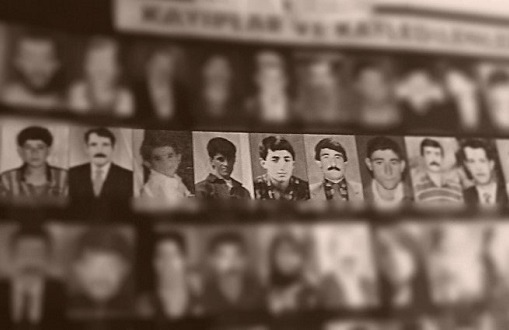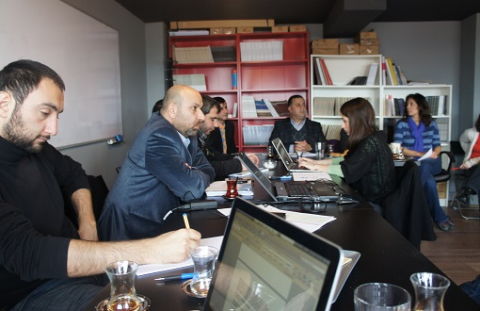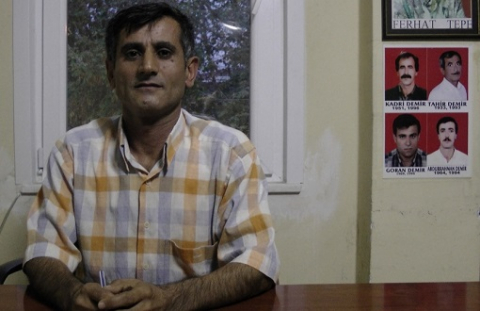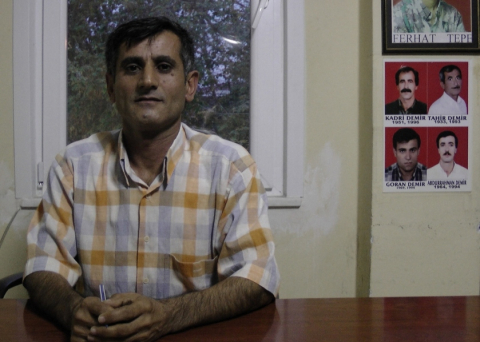
Documenting the legal process of enforced disappearance
Hafıza Merkezi’s legal team conducted field work on September 4-7 in Diyarbakır and Mardin as part of our legal documentation efforts concerning enforced disappearance.

Emel Ataktürk
Eser Poyraz
Our field work was aimed at tracking the legal documents regarding disappeared persons, meeting with and interviewing our counterparts in the region who have an interest in the subject and who are following the cases, and requesting their aid by getting their opinions. Despite the gravity of the topic, they were very friendly and hospitable. They all agreed on the importance and necessity of our project and said that they wanted to support us in any way possible. It strengthened our belief in the approaches we have taken and we understood once again that we are headed in the correct direction.
As a legal unit we aim to access information about the investigation and proceedings in cases of enforced disappearance as well as to reveal the legal dimensions of this process. Though one of the basic goals of this project is to document the legal process, our other goals include facilitating collective awareness that will help to get rid of impunity, the statute of limitations, and other similar legal problems, and that will initiate the process of punishing the perpetrators.
The best way of confining the shameful policies of such a horrifying period to the past is to ensure that responsible parties are held accountable.
We originally wanted to examine the process that begins the moment that the act of enforced disappearance is carried out and the relatives of the disappeared submit an appeal; we also wanted to document the functioning (unfortunately, most of the time, the malfunctioning) of the judiciary. However, with the beginning of our work, we found that most of the families have not made appeals and began to think about the question of why they haven’t. If the primary expectation of making an appeal is to learn the fate of the disappeared and to punish those responsible for that fate, what family wouldn’t want to appeal? What are the forces that would prevent families from making such an appeal? In conjunction with these realities, we would also like to take individual snapshots of each of these cases as they embark on the long process from the initial stage of investigations all the way to the European Court of Human Rights.
Even though we were aware of this already, one of the most shocking parts of this trip was to see that there were so few lawyers working in cases of this kind. While we expected to meet with dozens of lawyers interested in the gross violations of human rights experienced in the period of terror between 1990 and 2000, we were only able to meet with fewer than ten. This situation illustrates that one of the goals of enforced disappearance, to create an atmosphere of fear, has to some extent been achieved. However, it is comforting to know that there are a handful of brave, determined lawyers following these cases in spite of everything.
The Human Rights Association (İHD) is indisputably the most significant organization in this regard. Through this process, İHD has made it a priority to give voice to the families of the disappeared and has become a center where they can seek legal help. Though the strategy of enforced disappearance is not as common as it used to be, it is has not yet received enough public attention. The best way of confining the shameful policies of such a horrifying period to the past is to ensure that responsible parties are held accountable. Everyone whom we met wants to see these efforts produce results and to have the perpetrators punished.
The only way for families to get a sense of justice years later and for them to find a sense of peace, even if incomplete, is with an end to state protection of perpetrators and with the end of impunity. In order to learn the fate of the disappeared, there needs to be the possibility and expectation of discovering their bodies. The few cases that have been opened and the few exhumations that have been done have been positive developments, but what comes next is very important. We believe that a sincere reckoning with the past will provide enormous support to collective peace. For this reason it is essential to lift the statute of limitations, gather evidence, and ensure the judgment of the responsible parties. We are hopeful that the necessary visibility, to which our documentation work has aimed at contributing, will pick up speed.



